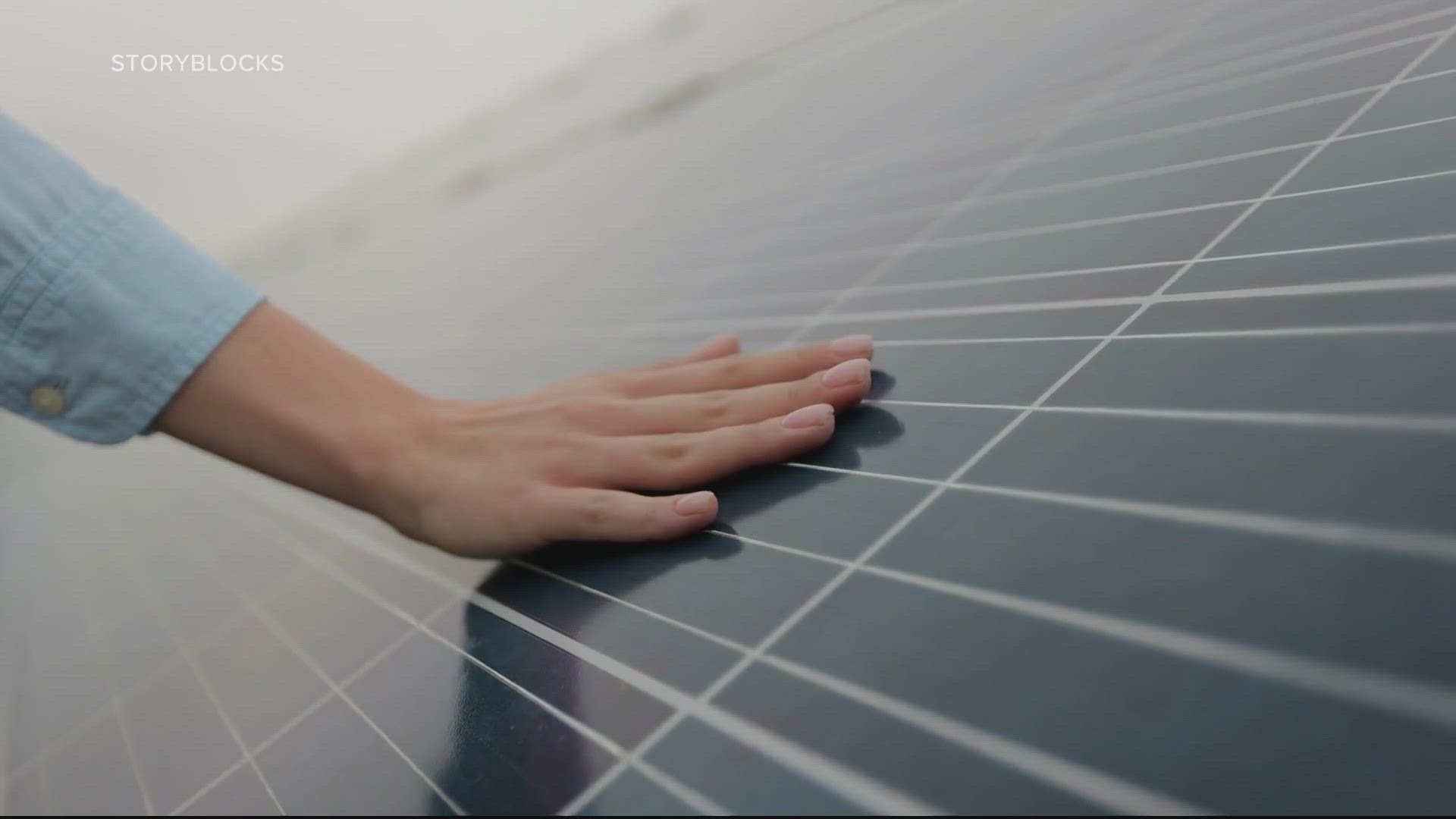WASHINGTON — Stopping the spread of misinformation is one of our goals. People often encounter it online, where anonymity and the speed of a click can make falsehoods and lies travel quickly. Sometimes, however, misinformation comes right to our doorsteps.
A viewer named Tony emailed WUSA9 about a solicitor who tried to sell him a new utility plan by claiming the mayor of D.C. made it mandatory that all homeowners use clean energy.
QUESTION
Does the District of Columbia mandate that homeowners use clean energy?
SOURCES
ANSWER
While local and regional leaders have goals for clean energy adoption, they are not mandates.
WHAT WE FOUND
Renewable energy is a focus at both the local and regional level. Washington D.C. Mayor Muriel Bowser spent the week overseas to attend the COP28 global environmental summit.
The Clean Energy DC Omnibus Act of 2018 set a goal of getting 100% of the District of Columbia's energy from renewable sources by 2032.
Another law passed last year, the Clean Energy DC Building Code Amendment Act of 2022, says buildings built or overhauled in Washington D.C. will need to meet a net-zero energy standard after 2027.
At its November meeting, the board of the Metro Washington Council of Governments, which coordinates with municipalities and stakeholders around the region to create unified progress, set a goal of having 250,000 solar rooftops by the end of this decade.
"Interestingly, the original goal that was set over a decade ago of 10,000 solar roofs," said Jeff King, Climate, Energy, and Air Programs Director for MWCOG. "And for a number of years, from 2009-2010, we only had around 400 systems in the entire region. And by 2015 or so, the you know, we achieved the 10,000 goal and there was a goal set of 30,000 solar rooftops by 2020. We actually exceeded that goal. So we met our 2020 goal.
"And, you know, as I mentioned, we have the greenhouse gas reduction goal: 50% by 2030. We really had no new solar rooftop goal over the last few years, and the COG board was really interested in finding ways to accelerate action on climate. And they've identified a number of items. Electric vehicles was a big area of focus last year. So this year, they asked us to bring to them some recommendations on what they can do to accelerate action on renewables. And hence, that led to the resolution that was passed by the board."
"Unfortunately," said Christopher Brown, a spokesperson for DOEE, "there are bad actors using high pressure sales tactics to get residents to sign up for sometimes very expensive contracts purporting to deliver clean energy.
"We advise residents to always get multiple quotes when buying clean energy and to carefully examine the fine print of any contract before signing. The District does have strong climate goals that aim to get 100% of our electricity from renewable sources by 2032. But this goal does not include a requirement that everyone install clean energy resources on their properties. Instead the District incentivizes and encourages local solar where it makes sense."
If you encounter a solicitor using high-pressure sales tactics to get you to purchase a utility plan, Brown advises you call the Office of the People’s Counsel at 202-727-3017. The Office of the People's Counsel is an independent part of the Washington D.C. government that fights for residents against the utilities so residents get the best rates and service.
King said Pepco and many other utilities offer consumers plans that deliver them energy from renewable sources. He added that anyone who is considering solar energy for their home but unsure of where to begin should check with their local government for assistance.
"I think many of our local governments here in the region have staff that are working to support development of solar markets," he said. "Here in D.C. for instance, there's the District of Columbia Sustainable Energy Utility. They have experts who can can help homeowners with that process. Again, the solar cooperative approach has really been quite effective--actually, in many ways, was founded here in the Mount Pleasant Solar Co-op by Anya Schoolman many years ago and has really taken off across this region as well as nationwide."

